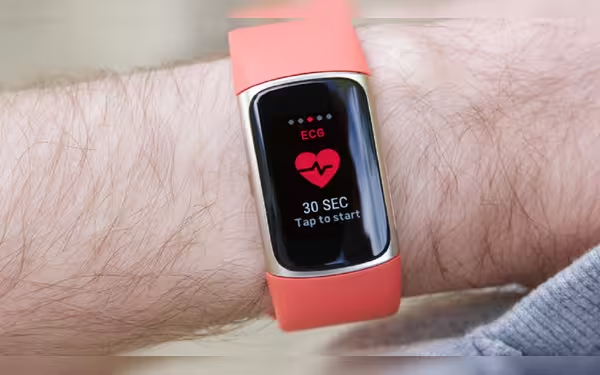Saturday, December 21, 2024 03:48 PM
Tokyo Researchers Develop Wearable Tech to Decode Emotions
- Wearables may soon interpret human emotions.
- Skin conductance linked to emotional arousal.
- Potential for revolutionizing mental health management.
 Image Credits: phoneworld_pk
Image Credits: phoneworld_pkTokyo researchers explore wearable technology's potential to decode human emotions, enhancing mental health management.
Wearable technology has transformed the way we monitor our health over the past few years. From counting steps to tracking heart rates, these devices have become essential tools for many individuals. Now, researchers are venturing into a new and exciting area: emotional intelligence. A team from Tokyo Metropolitan University has conducted groundbreaking research that suggests wearable devices may soon be able to detect and interpret human emotions.
The study, published in IEEE Access, focuses on skin conductance, a physiological response that is closely linked to emotional arousal. The researchers discovered that changes in the electrical properties of the skin can reveal emotional states such as fear, joy, and sadness. To conduct their research, volunteers watched videos specifically designed to evoke certain emotions, including fear, family bonding, and fun. Probes were attached to the participants' fingers, allowing scientists to measure subtle changes in skin conductance caused by perspiration.
For those unfamiliar with the concept, skin conductance is tied to the body’s sympathetic nervous system and occurs within seconds of experiencing an emotional trigger. The results of the study indicated that fear produced the strongest skin conductance response, while emotions related to family bonding resulted in a more gradual increase, blending feelings of joy and sadness. It is important to note that this study focused on just three emotional states.
Interestingly, skin conductance measurement is not limited to research labs. Many consumer devices, such as Fitbit smartwatches and Charge bands, are already equipped with electrodermal activity (EDA) sensors that measure sweat levels as an indicator of stress. These sensors have primarily been used for stress management, demonstrating the potential for integrating emotional analysis into everyday devices.
The implications of this technology are vast and could revolutionize mental health management. Imagine a smartwatch that not only monitors your physical health but also provides real-time insights into your emotional well-being. Such a device could guide users through moments of emotional distress, offering support when it is needed most. “We are one step closer to devices knowing how we are feeling,” said one of the researchers involved in the study.
As we look to the future, the integration of emotional intelligence into wearable technology could significantly enhance our understanding of mental health. It opens up new possibilities for individuals to manage their emotions more effectively and could lead to a healthier, more balanced lifestyle. The idea of a device that understands our feelings is not just fascinating; it could be a game-changer in how we approach mental health and well-being.













